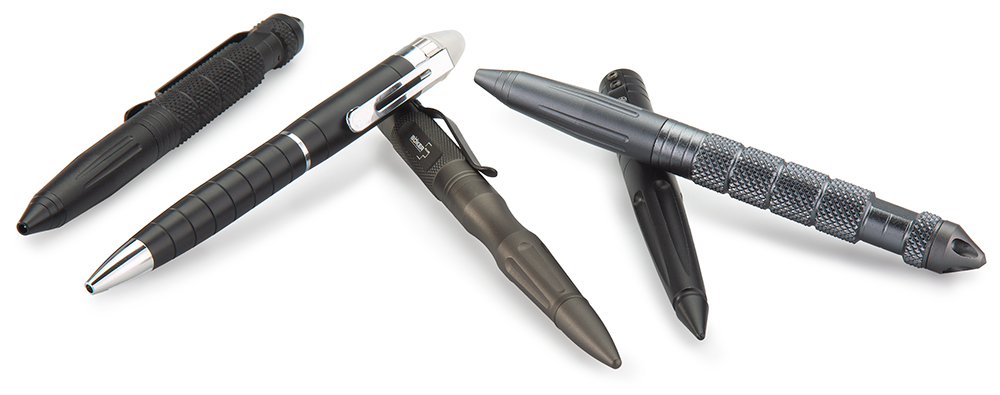
Among all the laws of military law, the SROE outlines military self defence as an extension to unit self-defense. Self defense is also mentioned in the ICRC Commentary on Additional Protocols. You can read our articles to learn more about the legality and legality for military self defense. We'll cover the basics and answer many common questions. We'll also discuss the limitations of military self-defense. You will then be well-prepared for self defense.
SROE defines self defense as an extension to unit self-defense
The SROE, or standard rules of engagement, define military or national self-defense as an extension of unit-based self-defense. The SROE was designed to help commanders exercise national selfdefense in any situation other than armed conflict. However national selfdefense has been misunderstood with individual self defense under criminal law. This was due to the US entering non-international armed conflict, which left the US military with a confusing and sometimes contradictory self-defense landscape.
The SROE defines a threat as one that is imminent if a person demonstrates hostile intent. To trigger self-defense, a threat doesn't have to be immediate. Unlike criminal legislation, the SROE uses a set of common definitions to define national, unit, and personal self-defense. The SROE also identifies a triggering event as a hostile or demonstrative of hostile intent.

ICRC Commentary to Additional Protocols mentions self defence
According to the ICRC Commentary on the Additional Protocol, hostilities require that civilians under its care are treated with dignity, including treatment for the injured, by anyone involved. This article bans the use force against civilians. It also makes hostages and prisoners-of-war subject to stringent standards. Additionally, it stipulates that civilian attacks must be proportionate. This means that collateral damage or incidental injuries must not exceed any expected concrete and direct military benefit. Moreover, any targeting must be based on reasonable expectations of civilian safety and security.
Articles in the Additional Protocols include provisions for civilian protection in a broader context. These provisions are applicable to structures like bridges, power plants and chemical factories. Some of these structures could be civilian-protected. Others may not. A civilian protected building might be considered a civilian defence measure, despite it not being mentioned in the ICRC Commentary to The Additional Protocols.
ICRC Commentary
The ICRC just released an Interpretive Guidance regarding military self defense. This will change the nature a cross-border war to how the territorial state consents to force. The Commentary does however reveal a flaw. In the first place, it is not legally binding. Only state practices and agreements can make a law binding. This Interpretive Guidance was created by the tireless efforts and expertise of the ICRC. It is a normative paradigm that sets out how to approach such situations.

Although the ICRC originally believed that an armed attack upon civilians on the territory a country's territory doesn't necessarily make it an act, the Commentary argues that the 1958 interpretation was too restrictive. Although the IAC does NOT require that a country intervene in conflict, it does permit it to use military force against civilians. But, the ICRC believes there is an armed conflict when one country uses force against another. That means that armed force may be necessary to protect civilians.
FAQ
Is Cardio Exercise Good Or Bad For Your Health?
Cardiovascular exercise is a great way to improve your cardiovascular health. It increases blood circulation, strengthens the heart muscle, boosts stamina, aids in weight loss, and gives you more energy.
Cardiovascular exercise includes running, biking, hiking, swimming, tennis, basketball, soccer, volleyball, football, etc.
It is important to remember that cardio exercises should not be performed at high-intensity levels. This could cause injury.
If you feel fine, only do the cardiovascular exercise.
It is important not to push yourself beyond your limits. In this way, you may injure or even kill yourself.
Warm up is the best way to start cardiovascular exercise. Gradually increase the intensity.
Be aware of your body and listen to it. If you feel pain during cardiovascular exercise, stop immediately.
It is also recommended to take some time off after a cardiovascular exercise. This will allow your muscles to rest.
To lose weight, you should include cardiovascular exercise in your daily routine.
It is the best method to lose calories and reduce belly weight.
Is Cardio Better Than Strength Training?
Both are equally excellent. But cardio is a much better choice if you want to gain muscles faster.
Cardio burns more calories per minute than strength training and burns more fat.
Strength training builds muscle mass, but it takes longer to achieve this goal than cardio.
How to build muscles quickly
Eating healthy foods and lifting weights regularly is the best way to build muscle fast.
Mornings are the best time to workout.
You should try exercises such as squats, bench presses, push-ups, etc.
You can try different weight training methods and remember to drink lots of water throughout the day.
Statistics
- By John Thompson Take a whopping 38% off a set of PowerBlock Pros. (menshealth.com)
- Are You One of the 20% of Guys (mh.co.za)
- An estimated calorie range for moderately active adult males falls between 2,200 to 2,800 calories per day, depending on age. (eatright.org)
- 10 pounds in a month is likely during a lean bulking phase, especially for beginners. (muscleandstrength.com)
- According to the American Academy of Dermatology (AAD), men over 50 are at a heightened risk of developing it. (healthline.com)
External Links
How To
How to Eat Well with Men
Choose to eat small meals instead of three large meals per day. You will spend less time consuming food and your stomach. You'll be less likely to overeat later.
Avoid eating snacks before bedtime. Snacking late at night causes you to wake up hungry and overeat the following day.
Instead, have a light snack an hour or two before sleep.
Avoid "snack attacks," where you grab something to eat whenever you feel hungry. This can be especially dangerous for those who are already obese.
You should ensure that your meals are balanced. Don't skip breakfast. Make sure to eat healthy lunches and dinners.
Losing weight can be achieved by cutting back on calories.
Reduce your intake of alcohol, nicotine, and caffeine. Both can influence how your body processes nutrients.
Get enough rest. Sleep deprivation makes people crave junk food.
Exercise regularly. Regular exercise can improve your mood and boost energy levels. It also burns more calories.
Take care emotionally. Stress can lead overeating or weight gain.
Learn to relax. Relaxation can be achieved through meditation and yoga.
Keep track of all the food you eat. Write down everything that goes into your mouth.
Supplements are important! Vitamins and minerals are often not enough for men to stay healthy.
Take a multivitamin every day. Multivitamins can be used to prevent deficiencies in key vitamins, minerals and other nutrients.
Take a vitamin C supplement. It can help prevent scurvy, strengthen your immune system, and keep you healthy.
Add zinc to your diet. Zinc deficiency can cause impotence.
Get enough water. Drink water at a minimum of 1.5 liters (or 4 cups) per day.
Limit salt. Sodium raises blood pressure and leads to heart disease.
Avoid trans fats. Trans fat has been linked with higher obesity, diabetes and heart disease rates.
Best male enhancement pills for 2018 - Best Male Enhancement Pills Reviews
There are many types of male enhancement products today. Some are effective, while others don't provide real results. This article will tell you about the best male enhancement products that actually work.